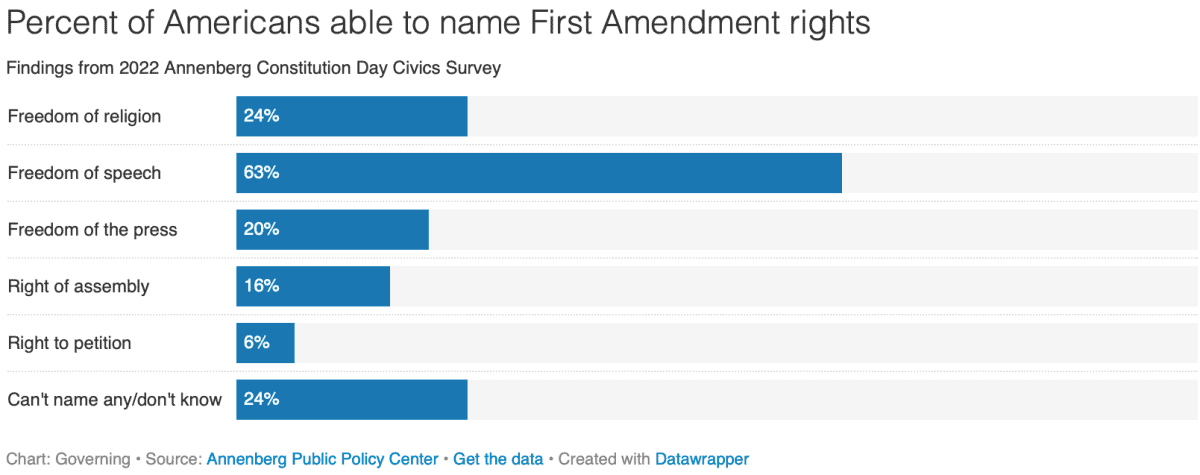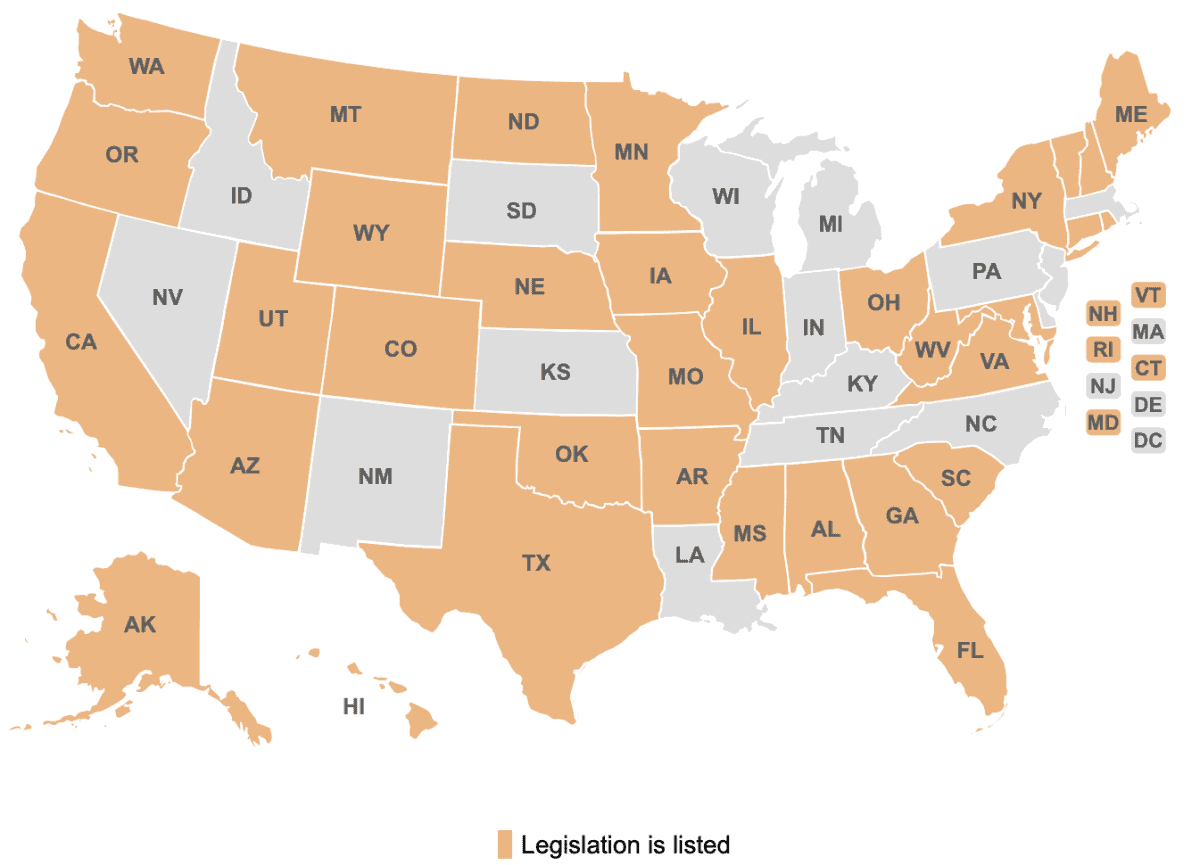(The Sentinel) — March 6-10 was National Civic Learning Week. But a 50-state survey of curriculum and legislative initiatives shows Kansas lagging behind in dedication to teaching civics, defined by Merriam-Webster as “a social science dealing with the rights and duties of citizens”
Governing.com paints a grim picture, noting on its website that civic knowledge is on the decline. Less than half of Americans can name all three branches of government, and decades of neglect have left students unprepared for civic life.

One of the interactive maps shows state requirements for civic education, and like many, the Sunflower State could use improvement:
Kansas
Middle School Course: No, not a stand-alone course.
High School Course: Yes, a full-year course
Media Literacy Standards: No
Civics Assessment: Yes, students need to pass an examination based on the US Naturalization Test in order to graduate
Civics Seal/School Recognition: Yes, a school recognition program
Service Learning Credit: No
However, the organization is upbeat about the future, pointing to increased federal funding for citizenship studies and state legislation; but on this second point, the Kansas Legislature fails to receive a passing grade, with no civic learning legislative initiatives this year:

Newly-seated State Board of Education member Dennis Hershberger calls for a new resolve in Kansas to teach our responsibilities as citizens:
“This really speaks to the core problem we are seeing in our society of minimal (at best), a basic understanding of the uniqueness of the origin and growth of a ‘constitutional republic’ as opposed to how many Americans see our great country as ‘just another democracy.’ A true government/civics education would reflect the effort in early K-12 to introduce children to our uniqueness and the genius behind the ideas of our founding fathers, who credited the Creator and Almighty God as inspiring them. The end of this effort should be a high school graduate knowing this history, appreciating the uniqueness of the founding documents, and finally, gratitude for their inheritance of citizenship.”

